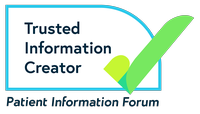Introduction to clinical trials
A clinical trial is a large science experiment with people to see which treatments work best for different health problems. Most of the treatments available are based on the results of clinical trials carried out in the past. Here’s how it works:
Doctors and researchers compare two or more treatments to find out which one is better. This could be a new medicine, a special procedure, a medical device, or another type of treatment. By doing this, they can help figure out the best ways to treat or prevent illnesses.
These trials are important because they give healthcare professionals information about:
- what treatments work best
- what side effects might happen
- what treatments are safe
Should I talk to my oncologist about clinical trials?
If you have cancer, your clinical oncologist might ask if you want to join a clinical trial. They might think you are a good fit for the study and that the new treatment could help you more than standard treatments on offer.
You can also look for clinical trials on your own. If you find one that sounds interesting, talk to your oncologist about it. They can give you advice and help you sign up if it’s right for you.
Clinical trials are not a last resort. They can be a chance to have a treatment that is not normally available.
Finding Clinical Trials
There are lots of clinical trials happening in the UK right now that include radiotherapy. Here are some places where you can find out more:
- NHS Clinical Trials: The NHS website (HERE) has a lot of information about clinical trials and some links to databases you can search.
- National Institute for Health Research (NIHR): This site (HERE) explains how clinical trials work and why they’re important. You can also search for trials that might be a good match for you.
- International Clinical Trials Registry Platform (ICTRP): The World Health Organization (WHO) has a big list of clinical trials from all over the world. You can search this list (HERE) to see if there’s a trial you’re interested in.
- Cancer Research UK: You can search this list (HERE) cancer type, drug name, trial name, or choose from a list of cancer types.
Clinical trials are not right for everyone, but if you are interested, speak to your clinical oncologist. The more you know, the more you can consider what might be right for you.
It is important to remember that not all clinical trials are open at all centres. Often a centre will offer trials that they have open, but if they feel a trial has the potential to be especially helpful to you they may discuss referring you to a centre where it is open. You can also ask to be referred to a centre with a specific trial open if it is one that you would like to take part in.
Further information
Clinical trials have different phases. The earliest phase trials may look at whether a drug is safe or the side effects it causes. Later phase trials aim to test whether a new treatment is better than existing treatments.[1]
Learn more about the different phases (HERE) through this link.
[1] https://www.cancerresearchuk.org/about-cancer/find-a-clinical-trial/what-clinical-trials-are/phases-of-clinical-trials

